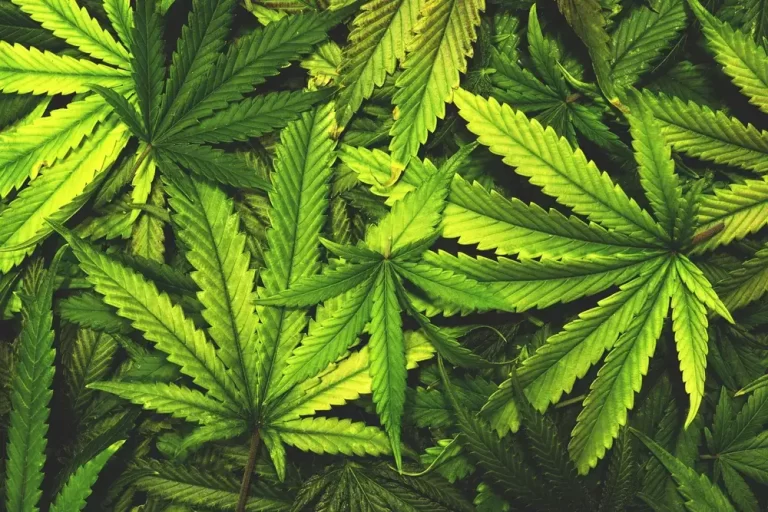
Antigua & Barbuda Grants Rastafari Sacramental Rights to Cannabis
- Cannabis News
- Cannabutter Digest
The government of Antigua and Barbuda, twin islands that make up one nation in the Caribbean, recently granted Rastafari the right to grow and smoke ritualistic cannabis legally. On the surface, this may seem like a political gesture of goodwill, an effort to support a local spiritual and religious culture. However, the gesture is, in fact, profoundly symbolic and is an attempt to right the wrongs committed against the Rastafari, a people with a rich and deep history marked by blood, slavery, and marijuana.
History of the Rastafari
The word “Rastafari” conjures many stereotypical images of Jamaican culture. However, Rastafari is a distinct religious and cultural group within Jamaican society. The Rastafari movement sprouted from the teachings of Marcus Garvey. Garvey asked the African people of the world to unite and had a vision for political and economic independence, cultural pride, and a return of the African community to its home continent. The movement spread rapidly following the conclusion of World War I, especially among poor and marginalized communities in the U.S. and the Caribbean.
The spiritual and political Rasta movement was not popular with everyone. Early spiritual leaders were often charged with subversion and treason by colonial authorities. Many Jamaican Rastas are descendants of enslaved Africans, converted to Christianity by missionaries as they worked sugar cane fields. Rasta draws on Old Testament stories, especially the story of Exodus. Many claim they await their deliverance from slavery and captivity for their return to Zion, the symbolic name for Africa.
The distinctive appearance of the Rastafari also harks back to the Old Testament. Rastafarians grew their hair and beards long in marginalized Jamaican communities, twisting them into dreadlocks. Many were said to be guided by the vow of the Nazarite (found in Numbers 6:1-21) or by passages from the book of Leviticus, both of which state that razors should never touch the heads of the faithful.
Believers also consume ganja or cannabis as a religious sacrament, claiming it aids in mystical revelation. Rastafarian followers believe ganja is the “holy herb” referred to in biblical passages that induce a meditative state. Most followers lead spiritual and peaceful lives, practicing self-isolation and vegetarianism.
Cannabis and the Rastafari
Indentured servants brought cannabis to the islands from India. Although cannabis in the Caribbean predates the Rasta faith, followers eventually gravitated to the medicinal plant. The Rastafari believe that ganja or cannabis brings them closer to the divine. The Rasta use the plant to worship and utilize it as a sacrament of their faith. To the people, cannabis is medicine, food, and faith.
Unfortunately, in the Caribbean, many Rastafarians have been persecuted for their beliefs and for consuming marijuana by local law enforcement. Rastafarians originally came from poor and marginalized African communities. These communities have long been targeted by authorities and punished for minor drug crimes. The Rastas in Jamacia have endured racial and cultural profiling by law enforcement because of their marijuana use for years.
Young Rastas were forced to choose between their religion and school. Dreadlocks are significant in the Rastafari faith. However, some children were singled out for their hair in the community. One young adult needed to choose between cutting off his dreadlocks or attending high school. Such persecution spills into adulthood as Rastafarians often feel singled out by law enforcement because of their hair and religious beliefs. Many say marijuana use caused them to be treated like second-class citizens, looked down upon for using the plant in prayer. As an adult, you can follow your faith and find yourself in jail.
A Major Shift in Policy
Signaling a significant policy shift, the government of Antigua and Barbuda recently made it the first Caribbean nation to authorize Rastafarians to grow and smoke ganja, their sacred herb, legally. The same law that grants the Rastafarians their religious rights also decriminalized the use of marijuana for the public. People outside of the Rasta faith can also grow up to four cannabis plants and possess up to 15 grams of cannabis.
Prime Minister Gaston Browne believes the government must provide a space for everyone at the table, regardless of religion. However, the government needed to acknowledge the Rastafari faith, their constitutional right to worship, and the atrocities committed against the group over the years.
Browne says he feels incredibly connected to the Rasta community. He talks extensively about growing up poor and how the Rastafari helped feed him and his siblings when his mother struggled with a mental illness. In 2018, Brown offered a public apology to the Rasta community for the oppression and religious persecution they suffered, a move deeply unpopular with opposition politicians and Christian leaders in the socially conservative region.
Further signaling a shift in political attitudes, a former sugar cane plantation, a symbol of oppression and slavery, is now being transformed into worship grounds and farmland for Ras Freeman, one of the region’s most prominent Rastafari religious groups.
Although Browne’s policy changes and apology are viewed as controversial through a conservative lens, multiple communities praise the leader and say he sets a positive example for the global community regarding marijuana policy and how to treat marginalized and historically underprivileged communities.
Religious Rights Moving Forward
Most people don’t view cannabis as the lynchpin for a complex religious and political conversation. However, that’s what is happening in the Caribbean. Restoring sacramental rights to the Rastafari and allowing them to consume cannabis legally is triggering widespread discussion in the rest of the Caribbean. Rastafarians in other regions may feel encouraged to begin more comprehensive cannabis reform efforts in other island nations.
Rastafarians say attitudes toward marijuana are changing. The plant is seen in a more positive light. Granting sacramental rights to the Rastafari community and decriminalizing the substance in Antigua and Barbuda helps destigmatize cannabis, setting up a framework for more future reform and giving other nations a roadmap to progress.
Stick with Cannabutter Digest for more news you can use. You can access cannabis content by bookmarking Cannabutter Digest and checking back frequently. We are constantly updating our news content, recipes, and product reviews to bring you the latest information.






